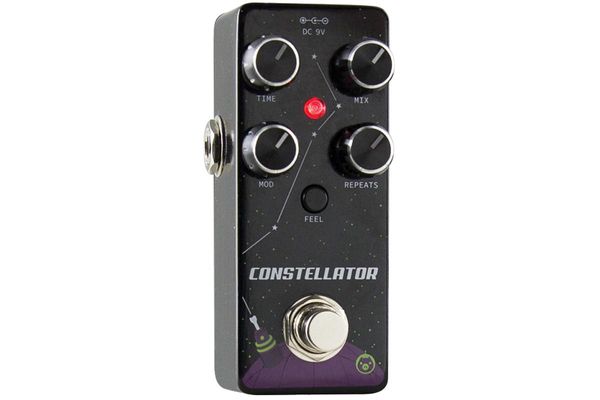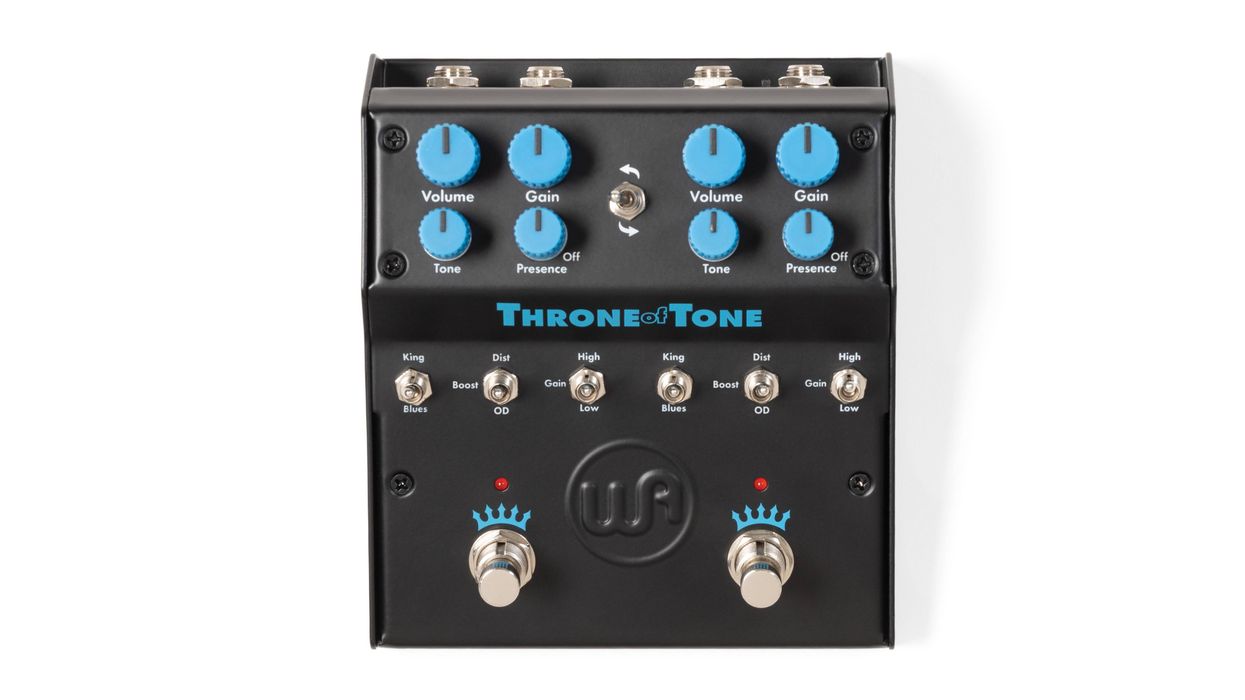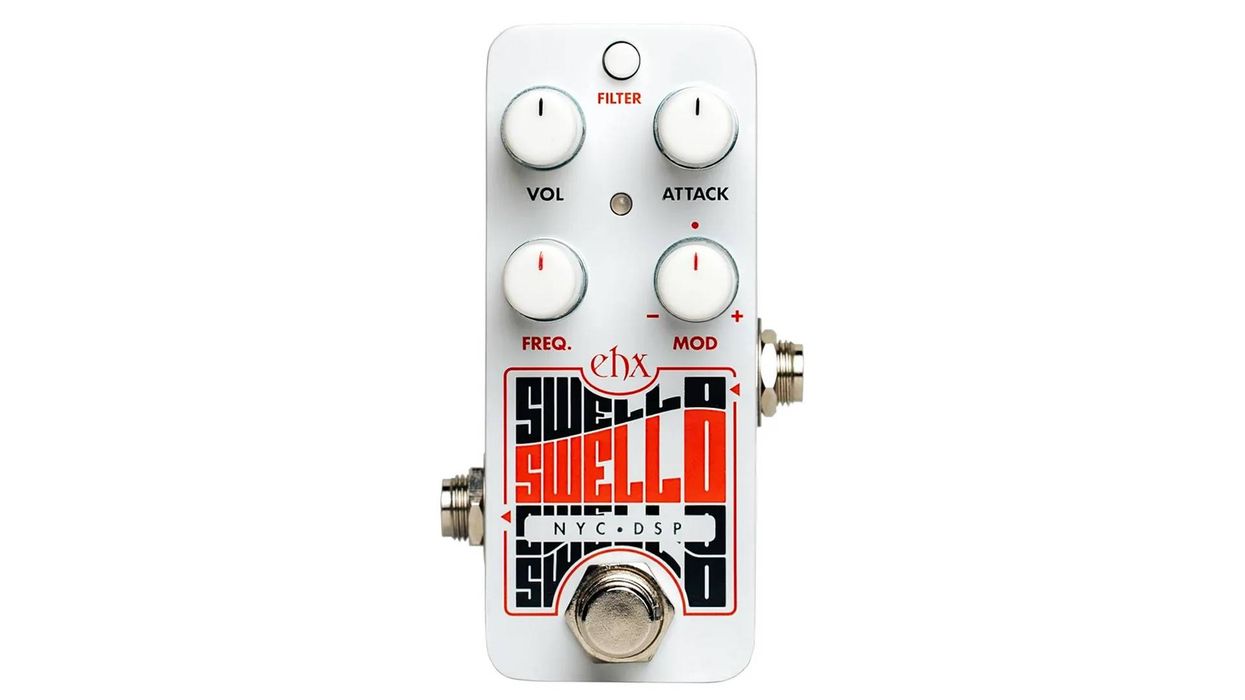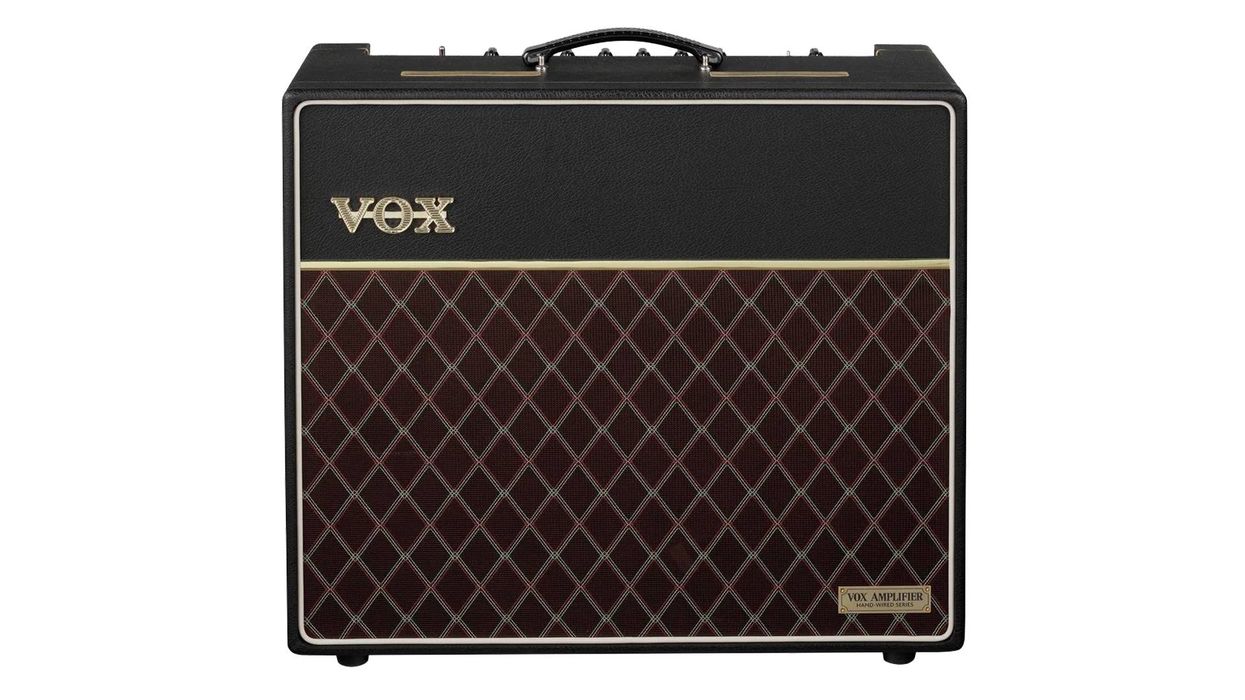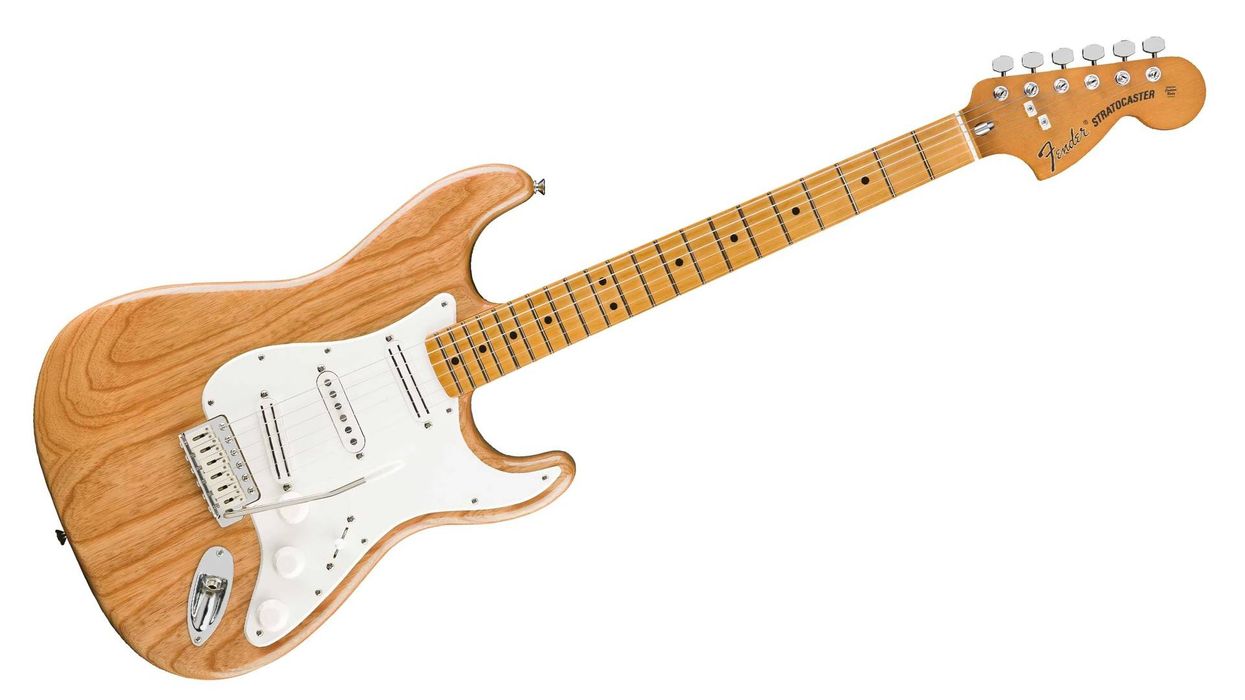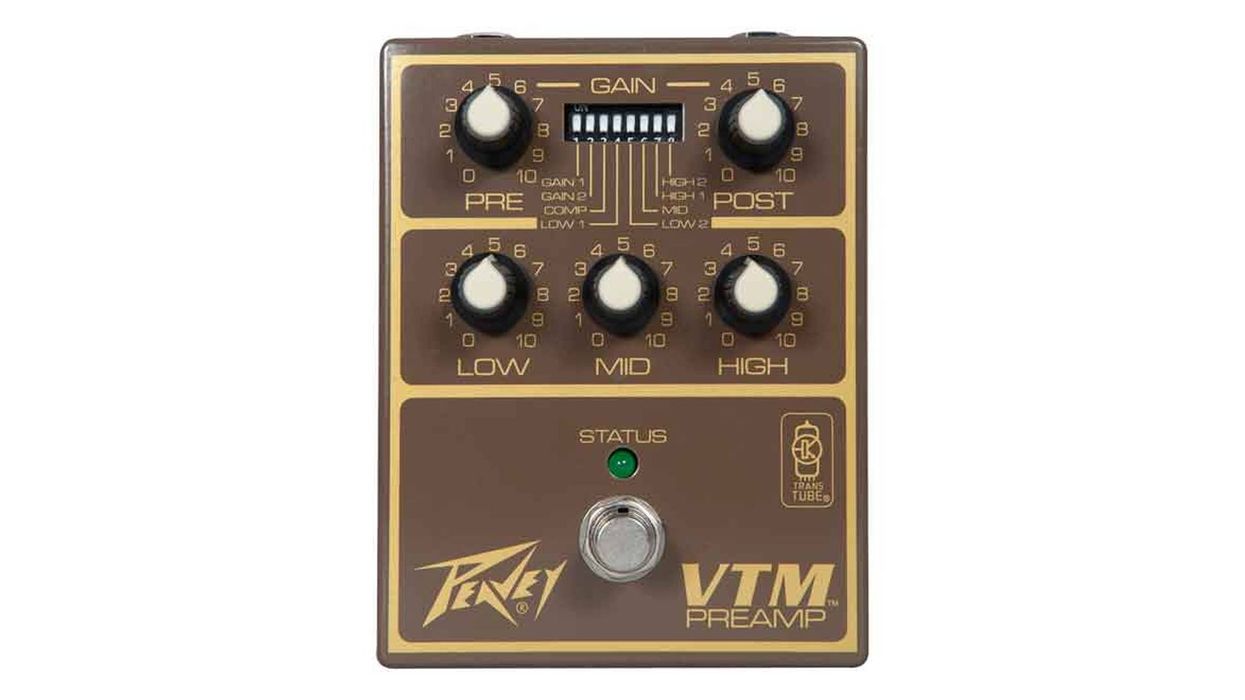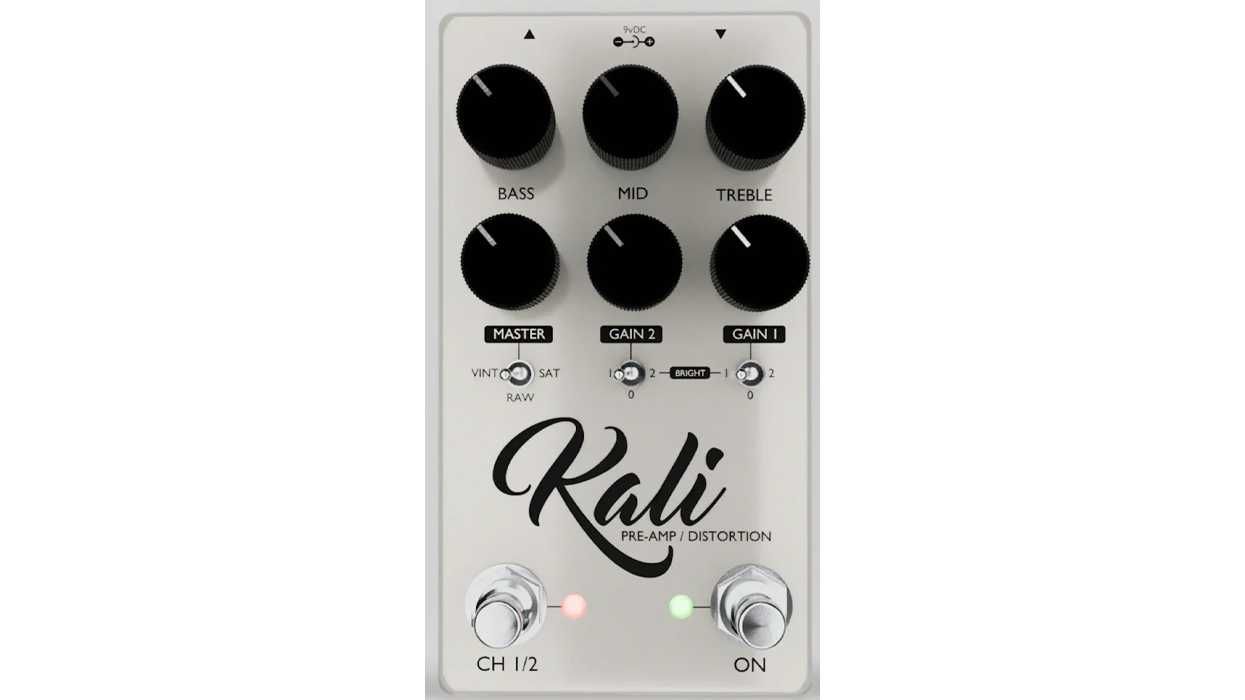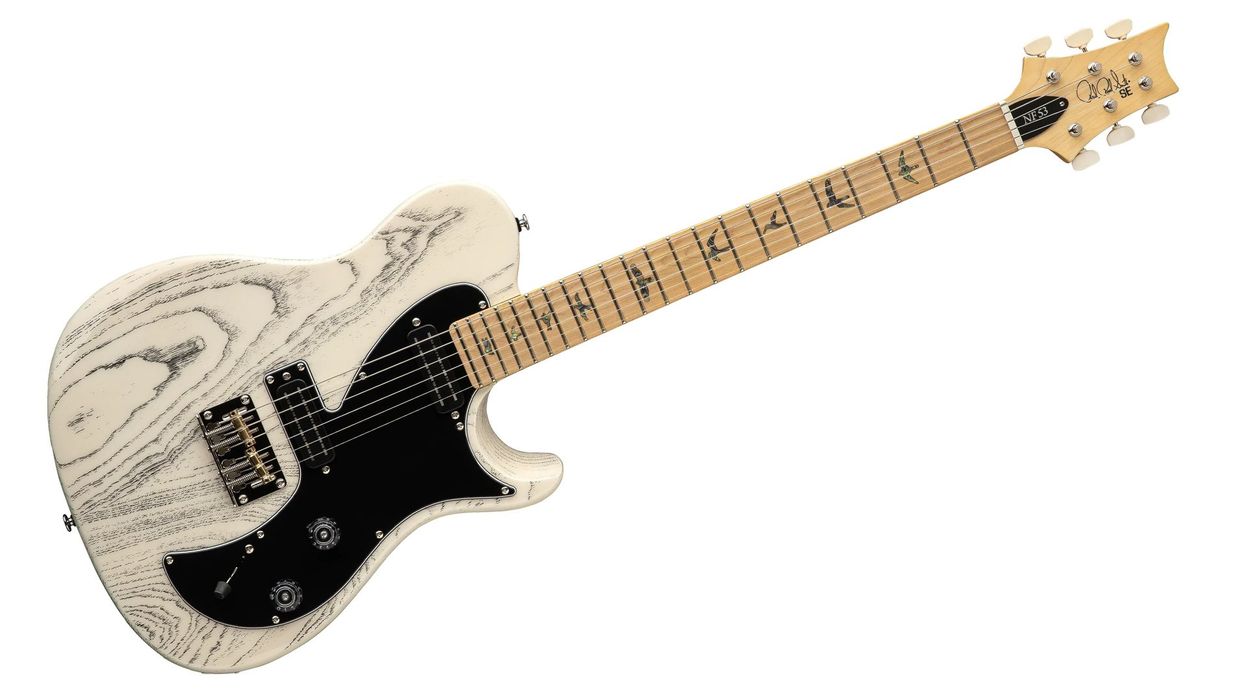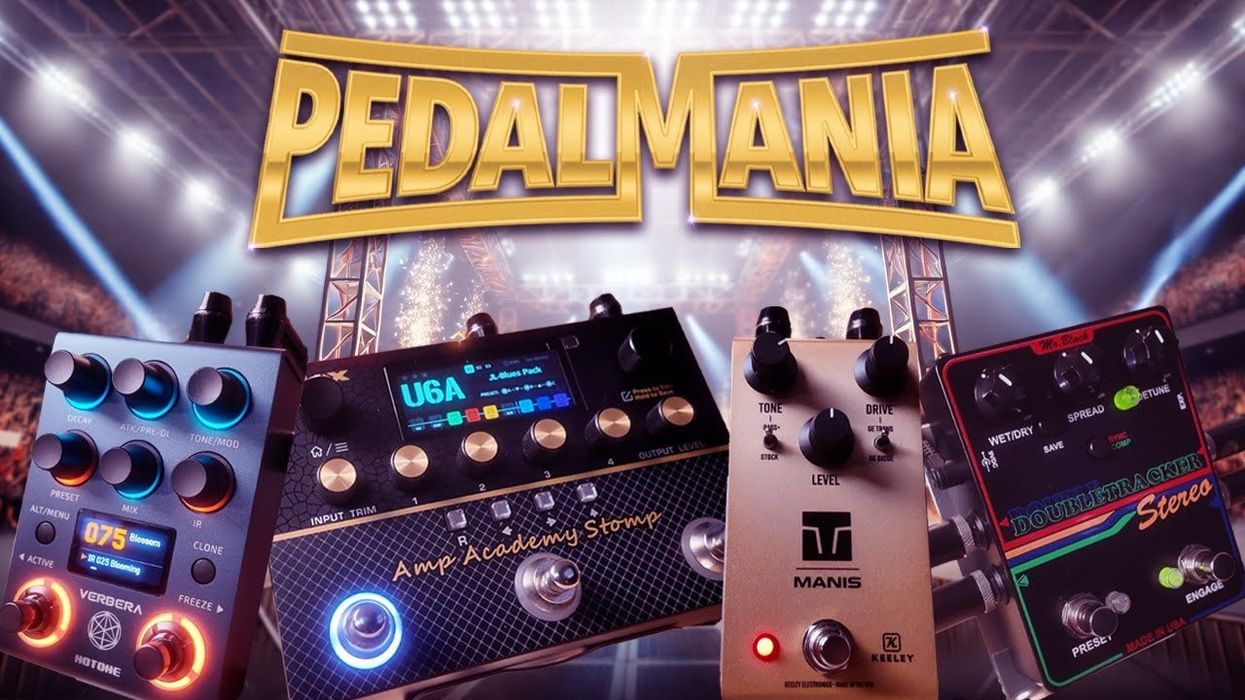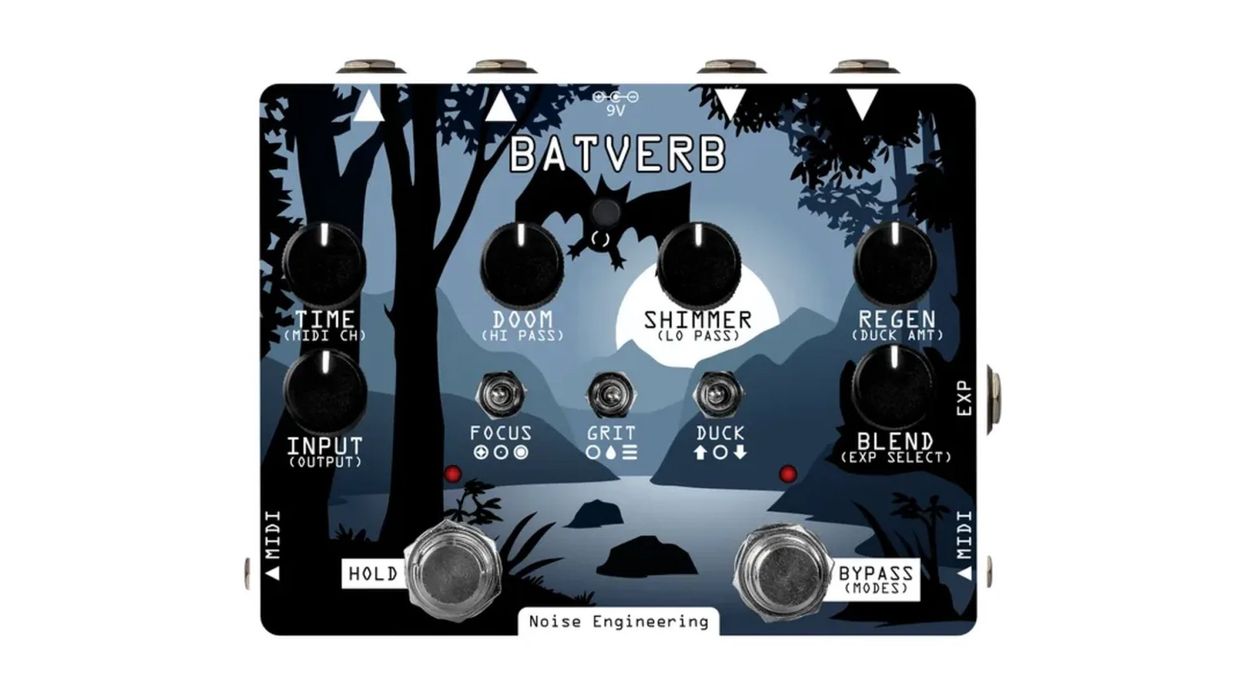Despite the spacey name, the Constellator isn't the most out-of-this-world contraption made by Pigtronix. For that prize, I would submit the Mothership 2 Analog Synthesizer, which is raving madness in a box. Madness is relative though, and the Constellator is possessed with a more warm-hearted insanity. And while this analog delay does playfully cross the line into modulation in two ways, it has more of a star- (or maybe shoe-) gazing vibe that's warm and old-school in tone, but looks beyond the orbit of conventional delay.
Little Dreamer
Modulated delay isn't new, of course, but it's harder to find in a stompbox this compact and affordable. The Constellator is tucked into a small, solid metal box that measures 1 1/2" x 1 3/4" x 3 3/4" and offers a maximum delay time of 600 ms. It's got your basic 1/4" in-and-out-mono jack set and requires a 9V DC barrel-type power supply. Needless to say, there is zero space for a battery option. There are four dials atop the Constellator: time, mix, mod, and repeats. The additional control is a push button just below those dials marked "feel"—a subtly vibey little function we'll get to in a bit.
1968 Les Paul Standard with humbuckers into Carr Vincent (volume and 3-band EQ all at noon; other controls off; 7-watt setting).
Constellator sequence: slapback, no modulation (time, 7 o'clock; mix, 2; mod, 9; repeats, 9; feel, off); spacey with short trails — first pass (time, 4 o'clock; mix, 2; mod, just past 8; repeats, 2; feel off); second pass: same settings with feel on); slidey glidey — first pass (time, 2; mix, noon; mod, 9; repeats, 3, feel off), second pass (same settings with feel on); wobbling trails —first pass (time, 3; mix, 3; mod, 3; repeats, noon, feel off), second pass (same settings with feel on).
When I investigate a new analog delay, I always pull out one of my favorite dinosaurs for comparison: the Analog Delay MXR made between 1976 and 1984. The MXR's characterful nature is, in part, ascribed to the use of MN3005 bucket brigade delay chips, the same chip at the heart of this Pigtronix stomp. The Constellator's time, mix, and repeat dials correspond with the big green MXR's delay, mix, and regen. And tonally, the little Pigtronix compares extremely well, providing the same warmth and richness as the MXR. With the repeats cranked, the Constellator also produces the familiar oscillating feedback trails that I love and prize for their Forbidden Planet quality.
All Mod, No Cons
Per usual, I plugged guitars with single-coil, humbucking, and gold-foil pickups into the Constellator, and used my Carr Vincent amp with the EQ straight up. I was extremely impressed with this little device's big embrace.
The controls had more range than my beloved MXR and performed flawlessly in traditional applications. The Constellator handles slapback duties like a champ. With more modulation, the repeats took on a sweet vibrating sound— imagine Scotty Moore's Echosonic with a slight hangover, and you'll get the idea. Spacier emissions were equally pleasing, and with time, mix, repeat, and mod controls at 3, 3, noon, and noon respectively, the Pigtronix moved into Magnatone turf and got dizzier as the mod dial went up. But I really enjoyed the more extreme settings, where notes seemed to warp and degrade as they hung and faded in the air. Punching in the feel button made this sound even weirder. The feel function is essentially a chorus, but it really accents the colors and degradation in the repeat trails, sounding, at times, like analog tape that has been stretched. Even so, clarity and definition remain in every picked or echoed note. This truly is a lovely sounding pedal.
There are a few snakes in the garden. The dials are quite tiny, and close enough to each other that I can just slip my thumb between them, which means adjustments on the fly require focus. There are grooves in the sides of each dial to make gripping them easier, but those of us with big paws may still be slightly challenged to make precise adjustments. Also, the feel button is so close to the mod and repeat dials that I accidentally popped it on with my big-ass thumb several times while making adjustments.
The Verdict
The Pigtronix Constellator is a mighty mite of an analog delay, with warm sounds that equal much pricier pedals. And the mod and feel controls take tones into infinity and beyond. But while its small size is an asset for the pedalboard space-challenged, that's also a slight issue for those of us who buy our gloves at Thornton Melon's Tall & Fat Stores. If that issue isn't a problem for you, the Constellator could become a valued tool for drawing your own map of the sonic stars.
